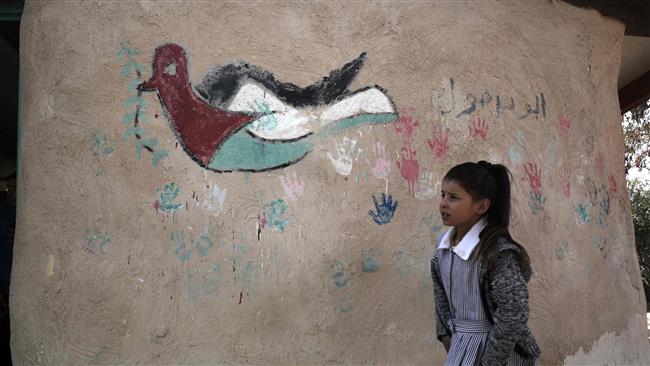Cairo – Some have said that the June 5, 1967 defeat to Israel was a cultural defeat in the first degree. It was a defeat of mentalities and practices of a culture that had been present for several years and that had paved the way for the causes of the defeat, which seemed inevitable.
It was not a military defeat. That was just its superficial aspect.
Have these mentalities and practices changed after 50 years? Despite the changes that have affected the region and the world, have the intellectual and cultural bases remained, even though their exterior is different?
From Cairo, poet Ahmed Abdul Muti Hijazi told Asharq Al-Awsat that the “Naksa”, or setback, was not just a military loss.
“It was a military defeat that exposed what we lost in all aspects of our lives. We lost democracy. The loss of democracy due to the military rule led to the defeat,” he explained.
“At the time of the ‘Naksa’, we knew nothing of our capabilities and ties with the world. We did not hold officials accountable for our reality. Since 1952, the Egyptian press was not free and the journalist did not have the facts. Neither did the cultural figures. Egyptian writers were unable to ask the questions or criticize the officials. We know what happened to those who did,” he stated.
“I will not speak of the oppression and torture… the policies that led to the defeat. The reactions that took place in poetry, the novel, prose, theater and cinema knew, to a great extent, the truth of what had happened.”
“I expressed this defeat in my poetry, especially in ‘Elegy of a Beautiful Life.’ This life was only beautiful in illusions. I looked at them and told myself that these illusions, which I thought of as dreams, were dead. That is why I was elegizing them in poetry,” said Hijazi.
“In my past works about the ‘Naksa’, I sensed the negative and corrupt conditions that may lead us to defeat. In my work, ‘Nothing Remains but Confession’, this sentiment was expressed by fear and concern. They may have been prophecies of what befell us on June 5, 1967.”
He added that this sentiment was echoed in the works of Amal Dankal and Salah Abdel Sabour.
Asked if the effects of the defeat still remain after 50 years, Hijazi remarked: “They are still here. There is no doubt that the 1973 victory was real, but we did not complete this military win. This victory should have led us to reassess our lives and what we lost so that we can learn from our defeat and losses, but this did not happen.”
On the contrary, he said. The next decades were wasted and “we did not return to democracy and discover the freedoms we lost.”
These freedoms led to the defeat and “they are still being oppressed to this very day despite the revolts of 2011 and 2013. This is demonstrated through the terrorism, which is a product of 1967 and in fact a result of another defeat, which is the absence of democracy,” he lamented.
Writer Ahmed al-Khamisi told Asharq Al-Awsat: “The effect of the ‘Naksa’ on Egyptian and Arab culture is very great. Its effect on literature is particularly pronounced. The July revolt, regardless of our differences over it, produced a culture based on national liberation, self-sufficiency, the liberation of women, relative social justice and the spread of free education.”
It also saw that the Palestinian cause is a central issue and that Arabism is a sense of national, revolutionary and historic belonging.
“The revolt before the ‘Naksa’ unleashed the creativity of countless writers, whose work was linked to social issues. Yusuf Idris emerged with his unique masterpieces. He was followed by Numan Ashur, Alfred Faraj and a slew of poets, critics and movie-makers. The cost of a book was only a few cents and it was accessible to several segments of society.”
“Now, after a half of a century, all foundations have changed,” he noted.
“Ever since Tawfik al-Hakim released his novel ‘Return of the Spirit’, the complete revision process took place. Literature that was focused on the simple man in Egypt began to tackle the nature of the book itself. Literature was isolated from its social role.”
He remarked how in the 1960s, Egypt had 15 cultural magazines for a population of 30 million, while now, it has a population of nearly 100 million and all it has is three cultural publications.
“In 1967, tanks did not not only defeat each other, but they defeated books and poetry. The consequences of the ‘Naksa’ are still strongly present in literature. This is evident in the confusion that you sense in the novels and literary works of the youth and how the way has been lost in politics, philosophy and literature. Literature is now preoccupied with flagrant sexual titles in quasi-literary works. It has become focused on all that is individual, without approaching the lines that intersect what is subjective and what is objective, what is individual and what is general.”
“Literary schools, such as dirty realism, which depicts the ugly side of life, dystopianism and counter-utopia, which go against the historic dream of the utopia, and those that glorify the form and language at the expense of the work and content, have emerged and spread.”
“The effect of the ‘Naksa’ is still tangible and it can be seen each day and in many works. Some of them are a negative expression of the setback, while others are positive, such as Bahaa Taher’s ‘Sunset Oasis’. We are now reaping the fields of the ‘Naksa’ that only produced bitter fruit,” said al-Khamisi.
